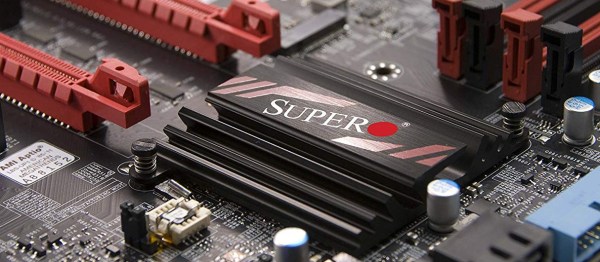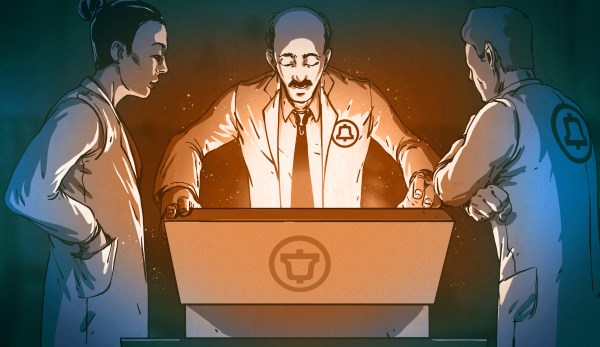Back in October 2018, a bombshell rocked the tech industry when Bloomberg reported that some motherboards made by Supermicro had malicious components on them that were used to spy or interfere with the operation of the board, and that these motherboards were found on servers used by Amazon and Apple. We covered the event, looking at how it could work if it were true. Now seven months have passed, and it’s time to look at how things shook out.
Business70 Articles
A Million Zombie Taxis By 2020? It’s Not Going To Happen
The tech world has a love for Messianic figures, usually high-profile CEOs of darling companies whose words are hung upon and combed through for hidden meaning, as though they had arrived from above to our venture-capital-backed prophet on tablets of stone. In the past it has been Steve Jobs or Bill Gates, now it seems to be Elon Musk who has received this treatment. Whether his companies are launching a used car into space, shooting things down tubes in the desert, or synchronised-landing used booster rockets, everybody’s talking about him. He’s a showman whose many pronouncements are always soon eclipsed by bigger ones to keep his public on the edge of their seats, and now we’ve been suckered in too, which puts us on the spot, doesn’t it.
Your Johnny Cab is almost here
The latest pearl of Muskology came in a late April presentation: that by 2020 there would be a million Tesla electric self-driving taxis on the road. It involves a little slight-of-hand in assuming that a fleet of existing Teslas will be software upgraded to be autonomous-capable and that some of them will somehow be abandoned by their current owners and end up as taxis, but it’s still a bold claim by any standard.
Here at Hackaday, we want to believe, but we’re not so sure. It’s time to have a little think about it all. It’s the start of May, so 2020 is about 7 months away. December 2020 is about 18 months away, so let’s give Tesla that timescale. 18 months to put a million self-driving taxis on the road. Can the company do it? Let’s find out.
Continue reading “A Million Zombie Taxis By 2020? It’s Not Going To Happen”
Radio Free Blockchain: Bitcoin From Space
Cryptocurrencies: love them, hate them, or be baffled by them, but don’t think you can escape them. That’s the way it seems these days at least, with news media filled with breathless stories about Bitcoin and the other cryptocurrencies, and everyone from Amazon to content creators on YouTube now accepting the digital currency for payments. And now, almost everyone on the planet is literally bathed in Bitcoin, or at least the distributed ledger that makes it work, thanks to a new network that streams the Bitcoin blockchain over a constellation of geosynchronous satellites.
Continue reading “Radio Free Blockchain: Bitcoin From Space”
Bell Labs, Skunk Works, And The Crowd Sourcing Of Innovation
I’ve noticed that we hear a lot less from corporate research labs than we used to. They still exist, though. Sure, Bell Labs is owned by Nokia and there is still some hot research at IBM even though they quit publication of the fabled IBM Technical Disclosure Bulletin in 1998. But today innovation is more likely to come from a small company attracting venture capital than from an established company investing in research. Why is that? And should it be that way?
The Way We Were
There was a time when every big company had a significant research and development arm. Perhaps the most famous of these was Bell Labs. Although some inventions are inevitably disputed, Bell Labs can claim radio astronomy, the transistor, the laser, Unix, C, and C++ among other innovations. They also scored a total of nine Nobel prizes.
Bell Labs had one big advantage: for many years it was part of a highly profitable monopoly, so perhaps the drive to make money right away was less than at other labs. Also, I think, times were different and businesses often had the ability to look past the next quarter.
Continue reading “Bell Labs, Skunk Works, And The Crowd Sourcing Of Innovation”
Security Engineering: Inside The Scooter Startups
A year ago, ridesharing scooter startups were gearing up for launch. Workers at Bird, Lime, Skip, and Spin were busy improving their app, retrofitting scooters, and most importantly, figuring out the logistics of distributing thousands of electronic scooters along the sidewalks of the Bay Area. These companies were gearing up for a launch in early summer, but one company — nobody can remember exactly who — decided to launch early. First mover advantage, and all. Overnight, these scooter companies burst into overdrive, chucking scooters out of panel vans onto the sidewalk simply to keep up with the competition.
The thing about San Francisco, and California in general, is that it’s a very direct democracy masquerading as a representative government. Yes, there are city council members and a state legislature, but the will of the people will rule. No one liked tripping over the scooters littering the sidewalks, so the scooters ended up at the bottom of a lake. Or in trees. Or in the trash. In time, city permits were issued, just like a hot dog cart or any other business operating on a public sidewalk, and the piles of electric scooters disappeared. Not before hundreds of scooters were vandalized, that is.
It’s still early in the electric scooter rental startup space, but if there’s one company leading the pack, It’s Bird. they’re getting the most press, the CEO was formerly at Lyft and Uber (which explains the press), and they’ve raised nearly a half Billion dollars in funding (which explains the press). Bird is valued at two Billion dollars, and it’s one of four major ridesharing scooter startups. Pets.com had nothing on this.
Despite how overvalued you think a scooter startup might be, they’re still a business, and they’re ruled by the bottom line. Bird has grown a lot in the past year, and with that comes engineering challenges. The Bird scooters must be more resistant to vandalism. The Bird scooters must be harder to steal. Above all else, they must remain in service longer. This is the teardown of how Bird managed to improve their bottom line and engineer a better scooter.
Continue reading “Security Engineering: Inside The Scooter Startups”
Anatomy Of A Cloned Piece Of Hardware
What would you think if you saw a bootleg of a product you design, manufacture, and sell pop up on eBay? For those of us who don’t make our livelihood this way, we might secretly hope our blinkenlight project ends up being so awesome that clones on AliExpress or TaoBao end up selling in the thousands . But of course anyone selling electronics as their business is going to be upset and wonder how this happened? It’s easy to fall into the trap of automatically assigning blame; if the legit boards were made in China would you assume that’s where the design was snagged to produce the bootlegs? There’s a saying about assumptions that applies to this tale.
Dave Curran from Tynemouth Software had one of his products cloned, and since he has been good enough to share all the details with us we’ve been able to take a look at the evidence. Dave’s detective work is top notch. What he found was surprising, his overseas manufacturer was blameless, and the bootleg board came from an entirely different source. Continue reading “Anatomy Of A Cloned Piece Of Hardware”
Your BOM Is Not Your COGS
“The prototype was $12 in parts, so I’ll sell it for $15.” That is your recipe for disaster, and why so many Kickstarter projects fail. The Bill of Materials (BOM) is just a subset of the Cost of Goods Sold (COGS), and if you aren’t selling your product for more than your COGS, you will lose money and go out of business.
We’ve all been there; we throw together a project using parts we have laying around, and in our writeup we list the major components and their price. We ignore all the little bits of wire and screws and hot glue and time, and we aren’t shipping it, so there’s no packaging to consider. Someone asks how much it cost, and you throw out a ballpark number. They say “hey, that’s pretty reasonable” and now you’re imagining making it in volume and selling it for slightly higher than your BOM. Stop right there. Here’s how pricing really works, and how to avoid sinking time into an untenable business.

















